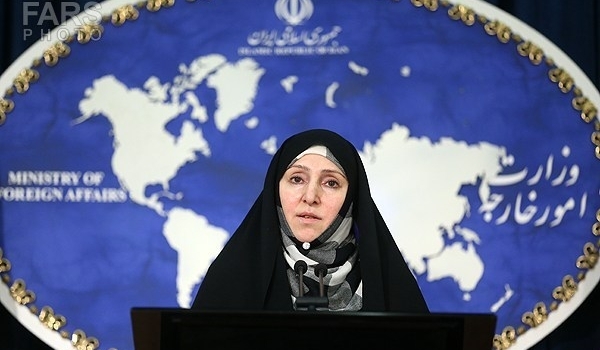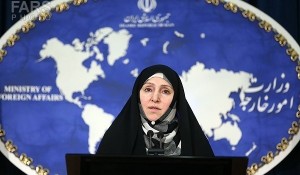
 Iranian Foreign Ministry Spokeswoman Marziyeh Afkham strongly deplored the recent terrorist attack on a Sunni mosque in Diyala province in Northern Iraq.
Iranian Foreign Ministry Spokeswoman Marziyeh Afkham strongly deplored the recent terrorist attack on a Sunni mosque in Diyala province in Northern Iraq.
At least 73 people were killed after a militant group opened fire inside an Iraqi Sunni mosque in the village of Bani Wais in the country’s Eastern Diyala province on Friday.
“Under the conditions that national will has emerged in Iraq to fight Takfiri terrorism under the guidance of religious authorities, distinguished Ulemas (scholars) and political elites, the terrorists in Iraq intend to damage the nation’s solidarity through adopting plot-based strategies such as attacking worshippers at Shiite and Sunni mosques,” Afkham said on Saturday.
She further described stirring religious strife in Iraq and the Muslim World as the worn-out strategy of the terrorists and their supporters and cautioned everyone to pay heed to this fact.
The Iranian foreign ministry spokeswoman also extended condolences to the Iraqi government and nation as well as the victims’ families on the death of their beloved ones in the incident.
Meantime, Afkham expressed the hope that the great nation and government of Iraq could overcome terrorism and the present difficult conditions through strengthening national solidarity and resolve.
The incident took place in a village mosque South of the city of Baquba, about 120km (75 miles) from Baghdad.
Iraqi officials said a bomber blew himself up in the mosque during Friday prayers and gunmen fired on fleeing worshippers.
Diyala province has seen heavy fighting in recent weeks between the Islamic State of Iraq and the Levant (ISIL) terrorist group and Iraqi troops.
The attack is seen as an effort to cause a rift between the country’s Shiite majority and Sunni minority at a time when Iraq is in dire need of unity due to the ISIL’s massive terrorist attacks and as Prime Minister designate Haider al-Abadi is trying to form a more inclusive government.







